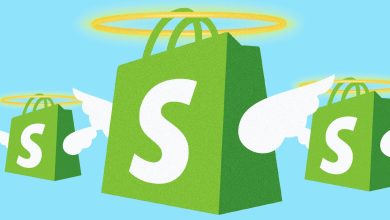Streamline Your Business Finances with Efficient Billing Software

Introduction
In today’s fast-paced digital landscape, businesses across various industries are constantly seeking ways to streamline their operations and improve efficiency. One crucial aspect of any successful business is effective billing and invoicing management. Manual billing processes can be time-consuming, error-prone, and can hinder the growth of a company. To overcome these challenges, businesses are turning to billing software to automate their billing processes and enhance financial management. In this article, we will explore the benefits of billing software and how it can revolutionize your business’s financial operations.
Time-Saving Automation
Billing software automates the entire billing cycle, from generating invoices to sending payment reminders. It eliminates the need for manual data entry and reduces the chances of errors or delays in invoice processing. By automating repetitive tasks, software frees up valuable time for your finance team to focus on more strategic activities, such as financial analysis and planning. The time saved can significantly increase productivity and contribute to the overall growth of your business.
Improved Accuracy and Compliance
Manual billing processes are prone to human errors, such as typos, miscalculations, and missing information, which can lead to payment delays and customer dissatisfaction. Billing software reduces the likelihood of errors by automatically populating invoice details from your centralized database, minimizing manual data entry. Additionally, advanced software ensures compliance with taxation and regulatory requirements by generating accurate invoices and maintaining proper records. This not only enhances your reputation with clients but also helps you avoid costly fines or penalties.
Enhanced Billing and Payment Options
Billing software provides various billing and payment options to cater to diverse customer preferences. It allows you to generate invoices in multiple formats (PDF, HTML, etc.) and send them via email, reducing paper usage and postage costs. Additionally, you can enable online payment gateways, enabling customers to pay invoices instantly using credit cards, online banking, or other digital payment methods. Offering convenient payment options can accelerate the cash flow and improve customer satisfaction.
Efficient Tracking and Reporting
Effective financial management requires accurate tracking of invoices, payments, and outstanding balances. software provides real-time visibility into your accounts receivable, allowing you to monitor unpaid invoices, track payment statuses, and identify any overdue accounts. With customizable reporting features, you can generate insightful reports on revenue trends, customer payment history, and outstanding balances. These reports enable you to make data-driven decisions and implement strategies to optimize your cash flow and minimize bad debt.
Seamless Integration and Scalability
Modern billing software integrates seamlessly with other business systems, such as customer relationship management (CRM) and accounting software. This integration eliminates data silos and ensures smooth data flow between departments, minimizing manual data transfer and potential errors. Moreover, software is scalable and can accommodate your growing business needs. Whether you have a small startup or a large enterprise, the software can adapt to your requirements, allowing you to add new customers, products, or services without disrupting your existing billing processes.
Customizable Invoicing and Branding
Billing software offers customization options that allow you to create professional-looking invoices that align with your brand identity. You can personalize your invoices by adding your company logo, choosing color schemes, and incorporating custom messaging. This level of branding helps reinforce your brand image and professionalism, making a positive impression on clients and promoting brand recognition.
Client Management and Communication
Billing software often includes client management features that help you maintain a centralized database of customer information. You can store contact details, billing addresses, and payment preferences for each client, ensuring accuracy and consistency in invoicing. Additionally, some software provides built-in communication tools, enabling you to send personalized messages, updates, or payment reminders to clients directly from the software platform.
Subscription and Recurring Billing
For businesses offering subscription-based services or products, billing software offers convenient subscription and recurring billing features. You can set up recurring invoices to be automatically generated and sent to customers at regular intervals. This eliminates the need for manual intervention and ensures timely billing for ongoing services, leading to consistent revenue streams and improved customer satisfaction.
Expense Tracking and Management
In addition to generating invoices, many software solutions include expense tracking and management capabilities. You can record and categorize expenses related to your business operations, such as travel expenses, office supplies, or vendor invoices. This functionality provides a comprehensive view of your financial transactions and simplifies the process of tracking and analyzing expenses, aiding in budgeting and financial decision-making.
Enhanced Security and Data Protection
Security is a critical concern when it comes to managing financial information. Billing software often incorporates robust security measures to protect sensitive data. It typically includes features like data encryption, user access controls, and regular data backups to ensure the confidentiality and integrity of your financial records. By utilizing billing software, you can minimize the risk of data breaches and maintain compliance with data protection regulations.
Cost and Efficiency Benefits
Implementing billing software can yield cost and efficiency benefits for your business. While there is an upfront investment associated with acquiring and setting up the software, the long-term savings outweigh the initial costs. By reducing manual labor, minimizing errors, and improving cash flow management, software helps you save time and resources. It also eliminates the need for paper-based invoicing, reducing printing and postage expenses. Overall, software contributes to cost reduction and improved operational efficiency.
Conclusion
Billing software is a transformative tool that streamlines your business’s financial operations, offering time savings, accuracy, scalability, and improved customer satisfaction. With its automation capabilities, integration options, and customizable features, software empowers you to efficiently manage invoicing, payments, and financial data. By adopting billing software, you can enhance productivity, strengthen financial control, and drive the growth of your business. Embrace the power of software and unlock the potential for a more streamlined and successful financial management process.
Read more Useful Content: Pharmacy Software
Frequently asked questions (FAQs) related to billing software:
Q. What is billing software?
Billing software is a computer program or application that automates the process of creating and managing invoices, payments, and financial records. It replaces manual invoicing methods, streamlining the billing cycle and improving accuracy and efficiency in financial management.
Q. What are the benefits of using billing software?
Using billing software offers several benefits, including:
- Time savings through automation of billing processes.
- Improved accuracy and compliance with taxation and regulatory requirements.
- Enhanced billing and payment options, such as online payment gateways.
- Efficient tracking and reporting of invoices, payments, and outstanding balances.
- Seamless integration with other business systems, such as CRM and accounting software.
- Customizable invoicing and branding options.
- Client management and communication capabilities.
- Subscription and recurring billing features.
- Expense tracking and management functionalities.
- Enhanced security and data protection.
- Cost and efficiency benefits through reduced manual labor and paper usage.
Q. Is billing software suitable for businesses of all sizes?
Yes, billing software is suitable for businesses of all sizes, ranging from small startups to large enterprises. The software is scalable and can accommodate the needs of growing businesses, allowing for the addition of new customers, products, or services without disrupting existing billing processes.
Q. Can billing software integrate with other business systems?
Yes, modern software often integrates seamlessly with other business systems, such as customer relationship management (CRM) and accounting software. This integration ensures smooth data flow between departments, eliminates data silos, and minimizes manual data transfer, enhancing efficiency and accuracy.
Q. How does billing software improve customer satisfaction?
Billing software improves customer satisfaction through various means:
- It provides multiple payment options, allowing customers to pay invoices conveniently using their preferred methods.
- It enables accurate and timely invoicing, reducing delays and ensuring transparency in billing processes.
- It facilitates better communication by sending payment reminders and personalized messages directly from the software.
- It enhances professionalism and brand image through customizable invoicing and branding options.
Q. Is billing software secure?
Yes, billing software prioritizes security and data protection. It incorporates features such as data encryption, user access controls, and regular data backups to ensure the confidentiality and integrity of financial records. However, it is essential to choose reputable software providers and follow best practices to maintain security.
Q. How much does billing software cost?
The cost of software varies depending on factors such as features, scalability, and the size of your business. Some software may charge a monthly or annual subscription fee, while others offer one-time licensing fees. It is advisable to compare different software options and consider the specific needs of your business when evaluating costs.
Q. Can billing software generate reports and analytics?
Yes, billing software typically offers reporting and analytics capabilities. You can generate reports on revenue trends, customer payment history, outstanding balances, and other financial metrics. These reports provide valuable insights for informed decision-making and optimization of cash flow management.
Q. Can billing software handle international invoicing and multi-currency transactions?
Yes, many software solutions support international invoicing and multi-currency transactions. They provide features to generate invoices in different currencies and manage exchange rates. This functionality is especially beneficial for businesses operating in global markets or dealing with international clients.
Q. How easy is it to learn and use billing software?
Billing software is designed to be user-friendly, with intuitive interfaces and easy-to-navigate features. While the learning curve may vary depending on the complexity of the software, most providers offer user guides, tutorials, and customer support to assist with the onboarding process. Additionally, training sessions and demos may be available to ensure a smooth transition to the software.
Read other useful content: Best Inventory Software: How to Choose one of the Best



